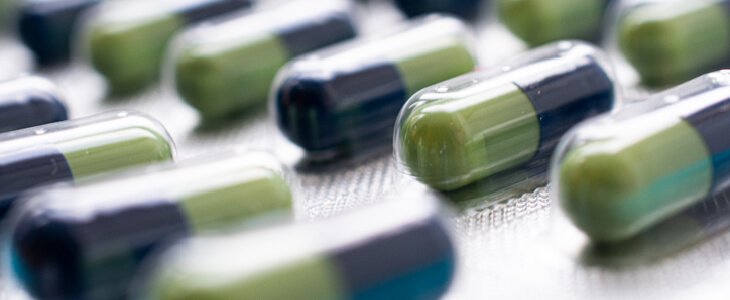Despite heavy regulation and oversight by the United States Food and Drug Administration, dangerous prescription drugs, over-the-counter medicines, and medical devices are still being marketed and prescribed to the unsuspecting general public. Wool Trial Law LLC represents victims across the country who have fallen ill due to these harmful pharmaceutical products.
Defective drugs, including those that fail to give adequate side effect warnings, may cause devastating injuries or death. Even FDA-approved medications can unreasonably put your health at risk. Pharmaceutical companies must pay for the damage caused by these products. If you or a close family member became sick after taking one of these drugs, you may be entitled to compensation.
About Pharmaceutical Litigation
Lawsuits against drug manufacturers, distributors, and sellers often involve strict product liability claims. This means that when a product is proven to be defective, the party sued is liable to a person injured by that product regardless of whether the defendant acted intentionally or carelessly.
There are three categories of product defects in pharmaceutical lawsuits:
- Design defects
- Manufacturing defects
- Warning defects
A design defect exists when the product is otherwise properly manufactured but is unreasonably dangerous because its attributes can cause unexpected injury. A product is defectively designed if it failed to perform as safely as an ordinary consumer would expect when used in a reasonably foreseeable manner or, in the case of complex products, if the risk of danger inherent in the design of the product outweighs its utility.
A manufacturing defect is a mistake in the assembly process that results in a product that differs from the manufacturer’s intended result, such that the single product, rather than the entire product line, is defective. A particular product is defective if, when it left the manufacturer, it deviated in a material way from the design specifications, formula, or performance standards of the manufacturer, or from otherwise identical units manufactured to the same design specifications, formula, or performance standards.
Failure-to-warn cases are more common. This is because prescription and over-the-counter drugs, unlike other products, may cause untoward side effects despite having been carefully and properly manufactured. Drug companies are required to warn of the potential side effects of a particular drug that are known or knowable in light of the generally recognized and prevailing best scientific and medical knowledge at the time of manufacture and distribution.
What Damages Are Recoverable?
A person injured by a defective drug or medical device may be entitled to recover all direct and consequential damages. Depending on the circumstances, damages may be awarded to compensate for:
- Past and future medical expenses
- Rehabilitative care
- Permanent disability
- Disfigurement
- Lost wages and benefits
- Loss of future income
- Loss of enjoyment of life
- Loss of consortium
- Pain and suffering
- Emotional distress
If a defendant acts maliciously, punitive damages may also be imposed in a product liability case.
Who May Sue, and Who May Be Sued?
A pharmaceutical mass tort lawsuit involves a large group of individuals who have been harmed by the same drug but in different ways. Some states require that a product liability plaintiff be a user or consumer of the defective drug or those who have actually suffered the side effects of a drug. Other jurisdictions, however, permit any person harmed by another’s ingestion of the drug, such as a child born with birth defects, to recover in strict liability. Spouses and parents of persons harmed by ingestion of a drug may sue to recover for loss of consortium. A wrongful death action may be maintained by the decedent’s survivors or estate representative.
Generally, a defendant in a product liability action may be any person in the product’s chain of distribution, including manufacturers, distributors, wholesalers, and retailers. Examples of proper defendants in pharmaceutical litigation are:
- Pharmacies and pharmacists
- Prescribing doctors and physicians
- Hospitals, clinics, and other medical treatment facilities
Defendants often try to evade liability by arguing that a drug is unavoidably unsafe. In actions involving the failure to warn of side effects, the manufacturer may try to point the finger at the prescribing physician, and vice versa. Some defendants even go so far as to blame the consumer for allegedly misusing a drug. This is why choosing the right lawyer, one with the knowledge, background, and tenacity to protect the rights of victims injured by a hazardous pharmaceutical product, is so important.
Choose Wool Trial Law
Wool Trial Law, located in Denver, Colorado, is a nationally-recognized mass tort litigation firm. We know how to hold drug manufacturers and medical device makers accountable. Lead trial attorney David Wool, Esq. has vast experience prosecuting these types of cases and has an impressive track record of success, having obtained multimillion-dollar settlements and significant jury verdicts in high-profile toxic tort, pharmaceutical, and medical device lawsuits.
Do not delay. If you or a loved one has suffered because of a defective pharmaceutical drug or medical device, trust Wool Trial Law to be your diligent and passionate advocate. Contact us today to discuss your case.

